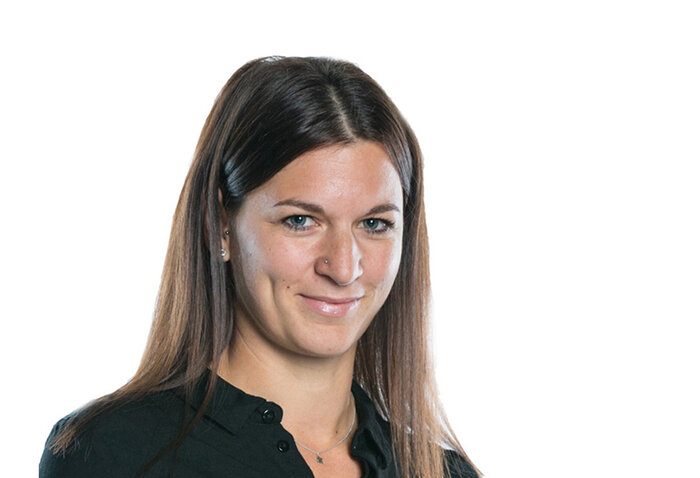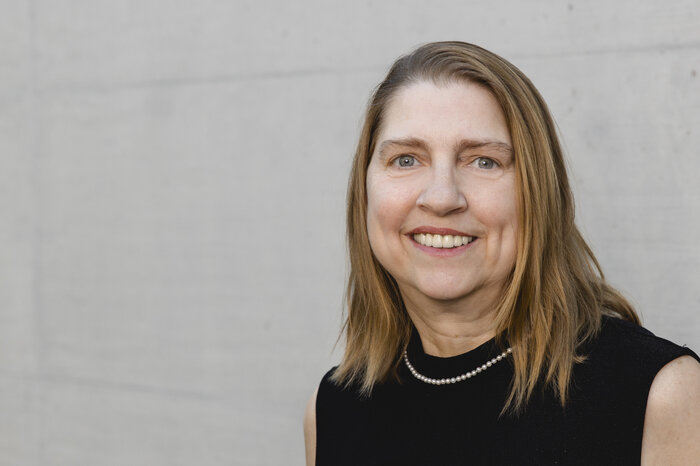Social Work
Bachelor's degree, part-time
In the Bachelor's degree programme in Social Work, the focus is on people and communities – with all their facets, characteristics, challenges, and conflicts. You will explore different life contexts and learn how to support and accompany individuals in a professional manner. Thanks to flexible structures and close cooperation with social institutions, you can directly integrate your practical experience into your studies – and vice versa.
After graduation, a wide range of exciting career paths will be open to you. Whether in education, healthcare, or counselling – there is a constant need for people who act with compassion, expertise, and social competence. Your skills will be in demand – and can be applied in many different ways.
You can complete the course either part-time alongside your job or full-time.
The 180 ECTS credits are distributed across 6 semesters and include compulsory modules, elective specialisations, and the Bachelor's thesis.
- Elective specialisation: You choose your elective specialisation from the following areas in the 1st semester and thus determine the subjects of the following semesters.
- Clinical Social Work
- Comnunity-based Social Work
- CS (Context Studies): Selection of 1 or 2 modules amounting to 12 ETCS (we recommend 6 ECTS per semester) ▷ More information.
- EN: Study Course in Englisch
- E: Elective course: In the 4th semester you choose an elective course amounting to 4 ECTS.
- ECTS: Credit points according to the "European Credit Transfer System". In accordance with international standards, 120 ECTS points must be earned over 4 semesters.
Course content in detail
- CS: Contextual studies
- ECTS: Performance points according to the "European Credit Transfer System". According to international standards, 180 ECTS points must be earned over 6 semesters.
The programme alternates between attendance at the FHV, e-learning units, self-organised learning, and group and project work. Student activities alongside the course are possible in accordance with the timetable.
Courses and examinations take place:
- In general on Wednesdays from 4:30 PM to 8:35 PM and Thursdays from 8:10 AM to 6:05 PM
- 3-4 block weeks per semester: Wednesday to Saturday, 8:10 AM to 6:05 PM
The Austrian Public Employment Service (AMS) supports you in your further education with funding measures. For more information, visit: www.ams.at (part-time education, educational leave).
Mobility window:
- Semester abroad in the 4th semester (recommended)
Internship:
- Orientation internship (100 hours) in the 2nd semester
- Professional internship (600 hours + supervision) in the 5th semester.
You can also complete the professional internship abroad. One example is the Global Social Dialogue internship programme in the field of international social work/development work. Preparatory, accompanying and follow-up seminars and supervision round off the practical units.
The Bachelor's thesis relates thematically to social work practice and/or the field of activity of the professional internship. It is advisable to draw on practical experience (professional internship, orientation internship, professional experience).
- Admission to the final oral examination:
- all courses in the curriculum must have been successfully completed (examination regulations and grading scale) and
- the Bachelor's thesis must have been graded positively.
- Degree awarded: Bachelor of Arts in Social Sciences, BA
- Level of the degree according to the national and European qualifications framework: Bachelor (1st cycle)
- Field of study according to ISCED-F code: 0923 - Social work and counselling
Career perspectives
With a degree in Social Work, many doors will be open to you. Social workers are needed wherever people require support. You could work in youth centres, schools, hospitals, or social organisations. There are also opportunities in workplace social services, as a coach, or in counselling. If you're looking to make a difference internationally, you could even work in development cooperation or humanitarian aid. No matter which path you choose: you’ll be working with people – and your work will have a real impact.
The degree also qualifies you for further Master's studies at universities or universities of applied sciences, both in Austria and abroad. At FHV, we offer a part-time Master's degree in Social Work for those seeking to deepen their knowledge. Building on that, a doctoral or PhD programme at a university is also possible.
Why study Social Work at FHV?
- There is a growing demand for qualified professionals in Social Work and Social Education – both locally and internationally. This opens up a wide range of career opportunities in a field that plays a vital role in society.
- FHV works closely with partner organisations and institutions, allowing you to apply your knowledge directly and benefit from real-life projects, excursions, and professional supervision.
- In your fourth semester, you can study at one of our partner universities abroad. You also have the opportunity to complete your work placement overseas – an important step towards building an international career.
- The Social Work degree at FHV is internationally recognised and provides excellent preparation for the diverse challenges of working in this field.
- The courses have a very close thematic relation to the Research Group Empirical Social Sciences at the FHV.
Access and application
The Bachelor’s degree programme in Social Work requires the following qualifications or competencies:
-
General university entrance qualification (A-levels), or
-
Relevant vocational qualification with additional examinations
All Austrian apprenticeships, as well as qualifications from vocational middle schools, business schools and their special forms, and the completion of at least a three-year vocational middle school for social professions (or a comparable programme in the psychosocial field in terms of scope and requirements), are proposed as relevant vocational qualifications.
Further restriction of relevant vocational qualifications to specific apprenticeship professions is not considered appropriate, given the dynamic development of the professional field and the need for an innovative and interdisciplinary approach to the social work profession.
The relevance of qualifications is determined by the degree programme director. Applicants with a relevant vocational qualification must successfully complete the additional examinations at FHV.
For admission, proof of language proficiency at level B2 in both German and English (according to the Common European Framework of Reference for Languages) is required.
The application deadlines at the FHV are divided as follows:
Application Period I - 15 November – 1 March
Apply by 1 March to benefit from an early admission decision.
Application Period II - until 31 May
You can apply for all study programmes regularly until 31 May.
Application Period III - until 31 August
Some programmes may still offer individual places until 31 August.
Note: The application deadline for applicants from third countries (non-EU/non-EEA, except Switzerland) is 1 March.
Information on applying with work experience for the bachelor’s degree programme in Social Work
As part of the admissions process for the Bachelor’s degree in Social Work, your previous professional experience will be taken into account. The following activities are recognised as “work experience”. Please upload the relevant supporting documents, such as employment references, in your online application.
-
Voluntary Social Year
-
Civilian Service
-
Relevant internship (within a social organisation) of at least 6 months
-
At least 2 years of relevant professional experience (within a social organisation and/or in social work–related roles)
-
At least 2 years of continuous professional experience in another field
-
Activities such as voluntary work, childcare, caring for relatives, etc., should be listed in your CV. No supporting documents are required for these.
Important: Only upload supporting documents that fall into one or more of the categories listed above. Other activities and periods of study are explicitly excluded and will not be considered.
Two steps to your desired degree programme at FHV:
Step 1:
Evaluation of your letter of motivation, CV, eligibility requirements and previous experience.
Step 2:
In a personal admission interview, we will learn more about you, your goals and your motivation for studying.
Previous study achievements can be credited individually in individual courses during your studies. This also applies to coursework that you have already completed at a recognised college or university. The equivalence of the acquired knowledge with the requirement profile with regard to the content and scope of the courses to be waived will be checked upon your application. If equivalence is determined, positively completed examinations will be recognised. A knowledge check is not planned in these cases. You will receive details on this in a meeting with the programme director.
Do you still have questions about the study programme?
Please feel free to contact us directly for consultation:
| Thursday | 8:30 - 11:30 am |
or individual appointment
Or join an info event at the FHV or online. You are welcome to come along and get consultation. Here is an overview of upcoming events:


